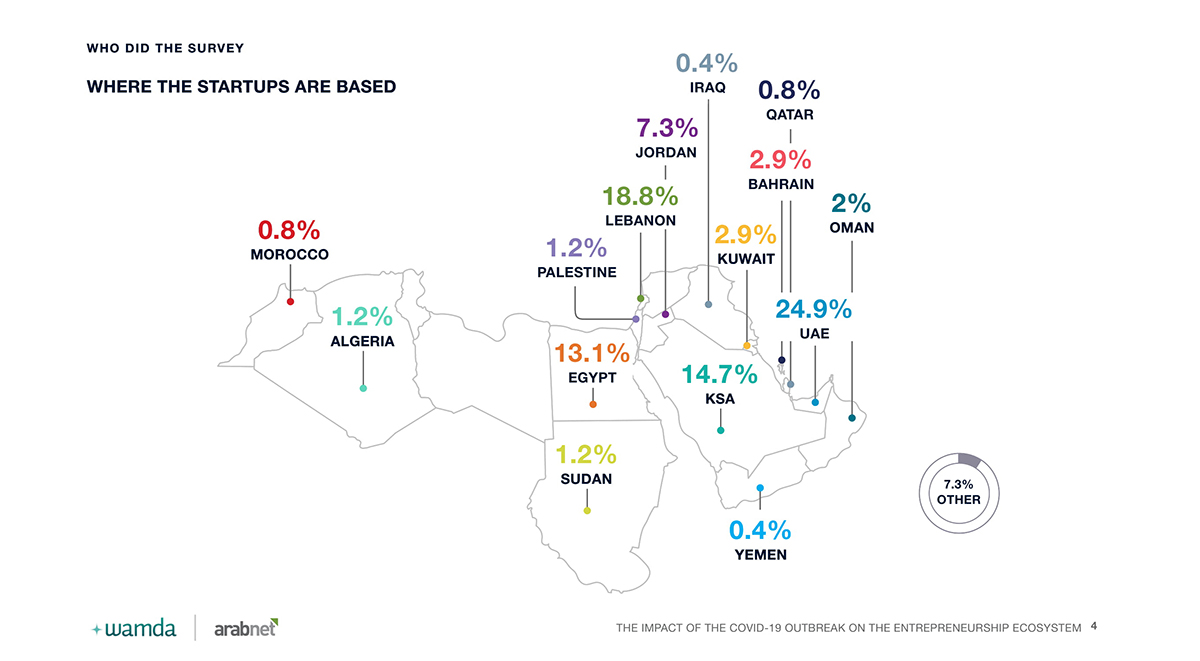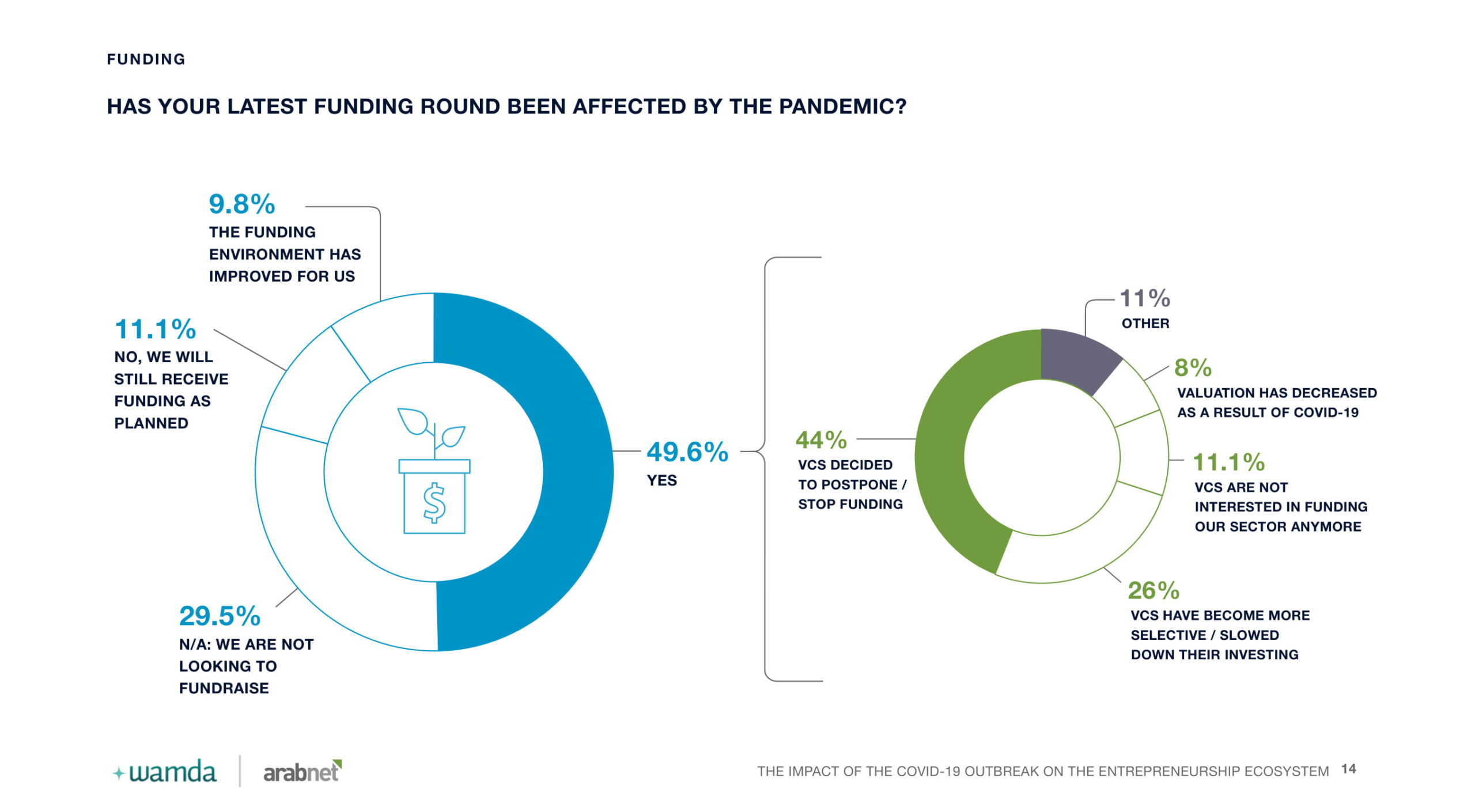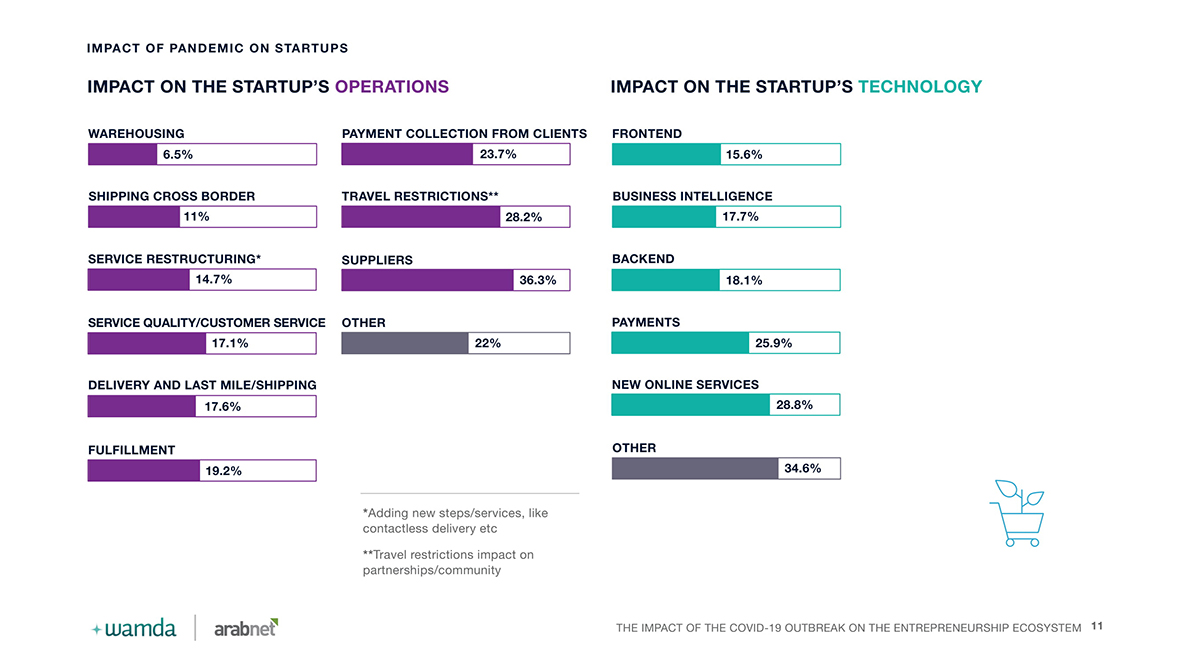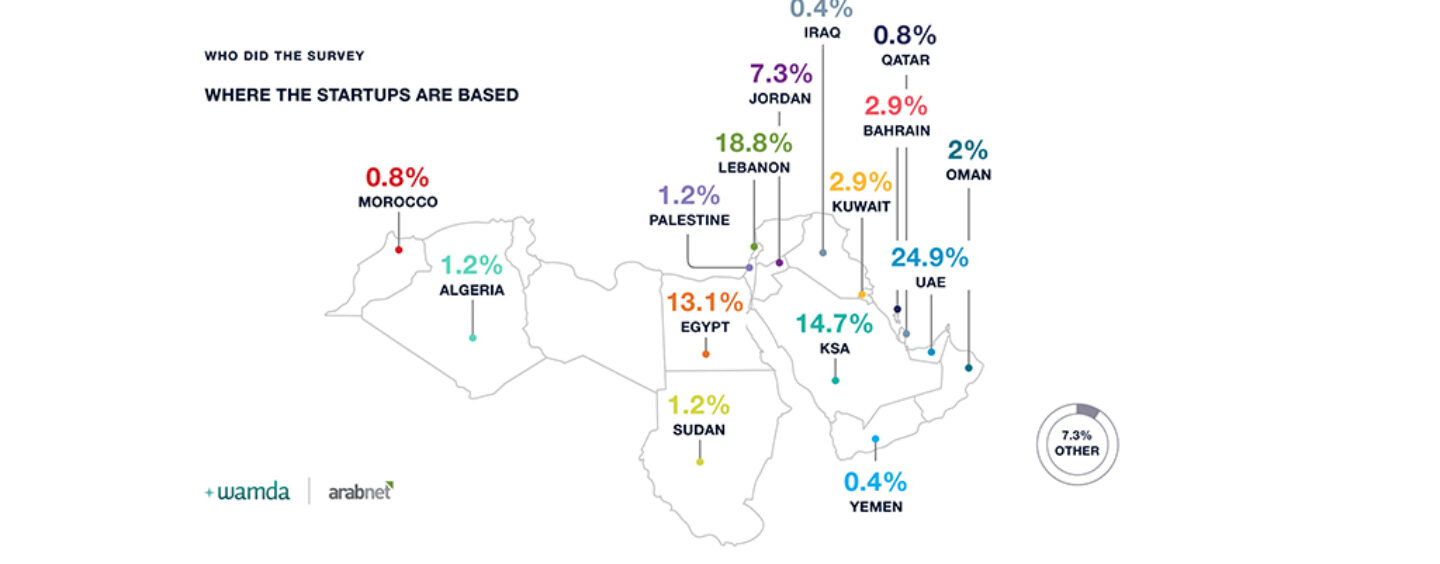A research report on the impact of COVID-19 on the startup ecosystem across the Middle East and North Africa (MENA).
As the COVID-19 outbreak continues to impact the way we live, work, and operate, very few startups in the region have managed to escape the repercussions of this pandemic. Some sectors have witnessed a surge in demand, while others seem to be struggling.
The report features findings based on data collected from 247 startup founders and includes research supplemented by Arabnet and Wamda. This report, developed by Wamda and Arabnet aims to identify the extent of the impact of COVID-19 on the region’s entrepreneurship sector and the measures that can be taken to alleviate the financial stress on startups.

Startups based in the UAE represent the largest contingent of the survey, with close to a quarter (24.7%) of respondents based in the Emirates, followed by Lebanon, Saudi Arabia and Egypt. Software as a Service (SaaS), e-commerce, and financial technology (fintech) are the most represented sectors. E-grocery or foodtech, education technology (edtech), health technology (healthtech), and on-demand services are also well represented – a reflection of a diversified ecosystem.

Overall, the pandemic has had a negative impact on 71% of startups in the region. Close to 50% of startups that responded to the survey reported that they have a cash runway of less than 6 months. Out of the e-commerce startups, 54.2% have a runway of less than 6 months, a third of logistics startups have between 1 and 2 months of runway left. In healthtech, 43.8% of startups have less than 2 months’ of runways, although the funding environment has improved for them. Only 12% of startups have a runway of more than 12 months. Half of the region’s startups have also witnessed an impact to their latest funding round.

The region’s startups have either pivoted or scaled back their operations in order to sustain operations. From supply chain disruption to travel restrictions and payment collection hurdles, multiple areas of business have been impacted by the outbreak and the new regulations put in place to combat its spread. Vulnerable sectors like travel, events, and mobility have been hit the hardest with 21.9% of them have had to suspend operations, while startups in e-grocery, edtech, and some fintech, saw an increase in demand.







